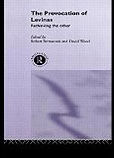
DAVID WOOD

Books

Polity Press, 2002
Reviews
'David Wood writes with a pioneering passion and reflective patience worthy of Heidegger himself. This is the sort of book that gives continental philosophy a good name.' -- Richard Kearney, Boston College
‘This is a fascinating book. Its appeal to those doing research on Heidegger, phenomenology and deconstruction will be strong, and it is likely to form a major reference point for future discussion.' Stephen Mulhall, New College, Oxford
From the Back Cover
In Thinking After Heidegger, David Wood takes up the challenge posed by Heidegger - that after the end of philosophy we need to learn to think. But what if we read Heidegger with the same respectful irreverence that he brought to reading the Greeks, Kant, Hegel, Husserl and the others? For Wood, it is Derrida's engagements with Heidegger that set the standard here – enacting a repetition through transformation and displacement. But Wood is not content to crown the new king. Instead he sets up a many-sided conversation between Heidegger, Hegel, Adorno, Nietzsche, Blanchot, Kierkegaard, Derrida and others. Derrida and deconstruction are first critically addressed and then drawn into the fundamental project of philosophical renewal, or renewal as philosophy.



David Wood - Author
The Step Back: Ethics and Politics After Deconstruction
SUNY series in Contemporary Continental Philosophy
Release Date: January 2006
ISBN10: 0-7914-6464-4
ISBN13: 978-0-7914-6464-9
"Ranging over the works of many of the leading thinkers since Hegel (among them Kierkegaard, Husserl, Sartre, Wittgenstein, Heidegger, Levinas, and Derrida) and treating issues (among them violence, responsibility, identity, alterity, the environment, and globalization) that have become increasingly urgent, The Step Back proposes a mode of addressing these issues that makes a decisive step forward across the "rough ground" on the way to a fresh understanding of the relations of the transcendental to the empirical and of the ontological to the ontic. The author suggests that the logic of these relations is well illustrated by the geometry of the Moebius strip, a ribbon that has two sides but only one surface.
A W. H. Auden of philosophy, David Wood's flashing, forensic sentences cut through the guises that conceal from ourselves our complacency even when--especially when--we take ourselves to be at our most ethically secure. Driven by a passionate sense of the seriousness of what is at stake, he writes nonetheless with an engaging sense of humour, with wit and with grace. This is the beautiful book he once said he hoped he would one day be able to write. But its beauty is not of the kind that isolates itself from our responsibilities. Its aesthetic is that of an ethics beyond ethics, an ethics for philosophy, but also for philosophy's other inseparable side." - John Llewelyn, University of Edinburgh
Time After Time
David Wood
Indiana University Press
Series: Studies in Continental Thought
Publication date: 6/15/2007
Format: paper 272 pages, 3 b&w photos
6.125 x 9.25
ISBN: 978-0-253-21909-1
In Time After Time, David Wood accepts, without pessimism, the broad postmodern idea of the end of time. Wood exposes the rich, stratified, and non-linear textures of temporal complexity that characterize our world. Time includes breakdowns, repetitions, memories, and narratives that confuse a clear and open understanding of what it means to occupy time and space. In these thoughtful and powerful essays, Wood engages Kierkegaard, Nietzsche, Heidegger, and Derrida to demonstrate how repetition can preserve sameness and how creativity can interrupt time. Wood’s original thinking about time charts a course through the breakdown in our trust in history and progress and poses a daring and productive way of doing phenomenology and deconstruction.












